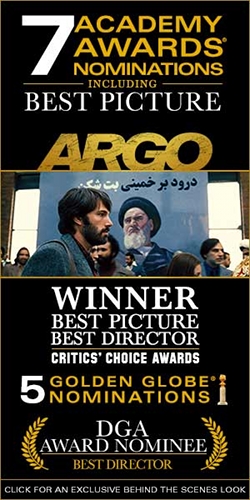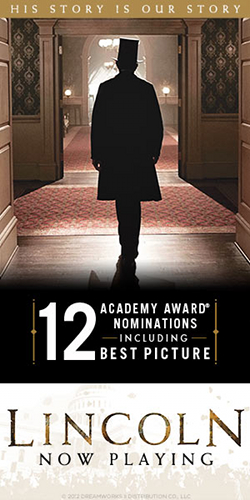Review: Sacrifice (2010)
Cast: You Ge, Xueqi Wang, Xiaoming Huang
Director: Kaige Chen
Country: Drama | History
Genre: China
Official Trailer: Here
Editor’s Notes: Sacrifice opens in limited North American release today.
While mainly lackluster overall, Sacrifice has some notable moments that make it a solid enough historical drama of imperial intrigue and a coup, drunken power, and a sense of duty, honour, and revenge. In short, the vengeful, spiteful, and ambitious general of the ruling Zhao clan Gu Tu’an stages a bloody coup that results in the massacre of the entire Zhao family with the exception of the princess’ newborn son, unbeknownst to said minister. The film develops towards the moment when the last of the Zhaos and Gu confront their interlocked identities and shielded histories. All of these elements serve as the film’s thick, chunky bookends: flourishing in design but rather empty of feeling. But it is what occurs between these narrative bookends, and specifically to whom, that generates something really interesting to make the film as a whole tolerable.
Huang nevertheless paints a highly charismatic character, sporting the scar on his eye (from Gu) with attractive, devilish mystery.
Before getting to that point, or moving towards it, a few words about the cast. The cast is of great quality, in fact, though locked in largely unimaginative characters. Of course, Ge You excels in by far the most multi-faceted role as the unwitting doctor Ying Cheng who aids the princess to save her newborn and then must subsequently deal with multiple tragedies as a consequence of his unexpected role in saving the last of the Zhaos. Wang Xueqi as the minister villain-turned-doting godfather Gu relishes in all of his character’s sly and deadly manipulations. Huang Xiaoming as Gu’s right-hand man Han Jue but who also helps the princess save her son at the beginning of the film, and who then is consigned to a kind of shadowy half-life who appears at Ying’s place intermittently, is terrific to behold; though given only part of a canvas on which to work, Huang nevertheless paints a highly charismatic character, sporting the scar on his eye (from Gu) with attractive, devilish mystery. The exception is Fan Bingbing as the princess who gives birth to the last of the Zhaos; Fan seems to have made a point of playing suffering martyrs—and not so well, at that, to put it mildly—in every other film she makes. In contrast is Qing Hai, who plays Ying’s wife with delicate, believable energy, if only for a brief amount of time in the film.
 The (re?)masculinisation of mainland Chinese cinema is the bulk of the film, focusing as it does on the lives of the four males last standing following the massacre: Gu Tu’an, Ying Cheng, Han Jue, and the Zhao boy christened Cheng Bo by Ying. Collectively and separately, these four characters bide their time for revenge to form and take place (or to anticipate and therefore derail it, in Gu’s case).
The (re?)masculinisation of mainland Chinese cinema is the bulk of the film, focusing as it does on the lives of the four males last standing following the massacre: Gu Tu’an, Ying Cheng, Han Jue, and the Zhao boy christened Cheng Bo by Ying. Collectively and separately, these four characters bide their time for revenge to form and take place (or to anticipate and therefore derail it, in Gu’s case).
Within this framework, arguably the real star and heart of the film is young actor William Wang, who plays Cheng Bo at eight years of age. The film devotes substantial time to this period, which is the halfway point to Bo’s coming-of-age and fulfilling the revenge scheme against Gu. Wang as Zhao is a wonder to watch; he more than holds his own opposite actors Ge You, Wang Xueqi, and Huang Xiaoming at the level of dialogue and gesture. It may even be possible that filmmaker Chen devoted so much time to this period because he realised Wang’s talent.
It may even be possible that filmmaker Chen devoted so much time to this period because he realised Wang’s talent.
At this point in Bo’s life, his awareness of the different personalities of the three men in his world is sharpening, so that his reaction to them is impacting the development of his own personality, which just happens to be a crucial element in Ying and Han’s revenge against Gu. During this portion of the film, one sees Bo manifest the first stirrings of rebellion against Ying’s attentiveness as his father, and in turn lean towards the more lenient and doting Gu. Bo also expresses his antipathy towards Han, for he interprets Ying’s pensiveness and sadness after Han’s visits as a negative reflection of Han’s character towards his father.
The exciting thing about this portion of the film apart from the collective performance of these four actors young and old is the way it addresses the tricky process of plotting revenge that encompasses a large period of time—in this case, fifteen years. What is more, this part also reveals and revels in (though not enough) the comedy potential of maintaining the course of revenge within a prolonged period of time when an expressive and strong-willed eight-year-old is involved, especially since Ying and Bo serve in the palace to get into the good graces of Gu. Of course, Bo is not made privy to Ying and Han’s plan of revenge. But the challenging aspect is finding that subtle point of not saying too much and saying enough for Bo to then internalise on the one hand and not externalise by ‘telling on’ Ying and Han to Gu, which would ruin the revenge plan, on the other hand.
Perhaps part of the reason why this portion of the film is so endearing is that it encapsulates childhood innocence. But like childhood innocence, this notable part of the film is ephemeral. Once it ends, so does most of the film’s charm.
-
http://twitter.com/jaimeburchardt Jaime Burchardt












 Review: Beautiful Creatures (2013)
Review: Beautiful Creatures (2013) Review: No (2012)
Review: No (2012) Review: A Good Day to Die Hard (2013)
Review: A Good Day to Die Hard (2013) Review: Side Effects (2013)
Review: Side Effects (2013) Blu Review: Side by Side (2012)
Blu Review: Side by Side (2012)





